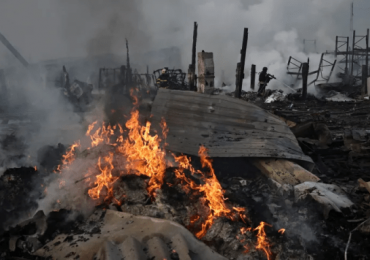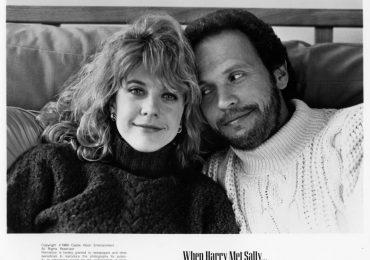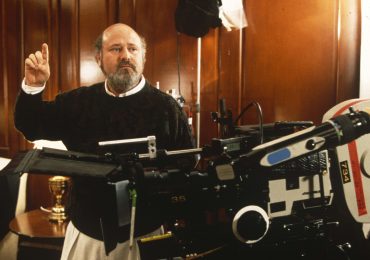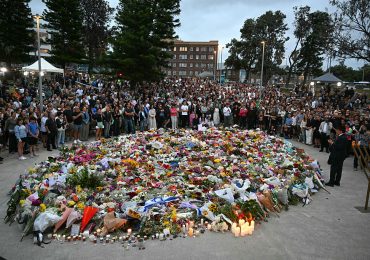Macklemore’s newest single “Hind’s Hall”—inspired by the pro-Palestinian activism seen at Columbia University and other college campuses around the world—is the latest addition to the catalog of American protest songs that includes Billie Holiday’s “Strange Fruit” and Crosby, Stills, and Nash & Young’s “Ohio.”
The song’s title is in reference to the recent siege of Hamilton Hall at Columbia University that ended with a confrontation between demonstrators and police that broke up the pro-Palestinian encampment. The activists, composed mostly of students and faculty who were calling for their school to divest from Israel, “renamed” the school building Hind’s Hall in honor of 6-year-old Hind Rajab, who was killed by Israeli troops in Gaza.
[time-brightcove not-tgx=”true”]
“What is threatenin’ about divesting and wantin’ peace?/The problem isn’t the protests, it’s what they’re protesting,” the 40-year-old artist says in the track.
It isn’t the first time Macklemore has made a political statement with his music. The Grammy-winning rapper is most well-known for his chart-topping hits “Thrift Shop” and “Same Love,” the latter of which touches on marriage equality and acceptance for same-sex relationships. The Seattle rapper also stirred online controversy with his 2016 song “White Privilege II,” featuring Jamila Woods.
Macklemore physically showed his support by speaking at the Nov. 4 pro-Palestinian rally in Washington, D.C., though he previously shared he did not consider himself an expert in the conflict in an Instagram post on Oct. 20. “The bombings, kidnappings and murder of the Israeli people carried out by Hamas was horrific in every way imaginable. My heart deeply hurts for the Israelis that lost loved ones to such an abomination,” he wrote before adding,” But killing innocent humans in retaliation as collective punishment is not the answer. That is why I am supporting the people around the world who are calling for a cease-fire.”
Read More: Protesters Storm Through Barricades in Attempt to Disrupt Met Gala With Smoke Bombs and Flares
Many took to X to share their thoughts on the tune. “This is very powerful. Thank you for creating this,” tweeted Dr. Jill Stein, the 2024 Green Party presidential candidate.
All proceeds from the song will go directly to the United Nations Relief and Works Agency (UNRWA) once the song hits streaming sites.
Inspiration behind the song
Macklemore was undoubtedly influenced by the more than 100 sit-ins or protests taking place across college campuses in the U.S.—which have since extended across the globe— in his newest song “Hind’s Hall.”
The encampment at Columbia University, which arguably received the most media coverage of all other protests, was first set up on April 17 after the school called on law enforcement to arrest protestors. In the days following, tension between administrators and students escalated until demonstrators took over their school lawn, and eventually, Hamilton Hall, which has notably been the site of numerous student occupations over the past decades.
Columbia University has an enduring history of student-led protests, with the 1968 Vietnam War protests bearing striking similarities to those seen in 2024. But on-campus protests have occurred many times with their student body previously advocating for divestment from South Africa and private prisons. The strength of a protest song remained high among demonstrators who were arrested at the most-recent Columbia protest, with one alumni saying that those arrested sang all the way from campus to the police station to ease their nerves, TIME previously reported.
The video for the song includes footage of demonstrations, and political leaders who have been in support of the Israel-Hamas war.
The song is overtly critical, with the rapper proclaiming that he won’t vote for President Joe Biden in the upcoming election, and calling out his dislike of the police. In the second verse, Macklemore mentions the role social media has played in the protest, pointing out that even with a TikTok ban, people have already seen the “rubble, the buildings, the mothers and the children.” He is fierce in his rebuke of Israel, referring to it as a state that “rel[ies] on an apartheid system” to “uphold an occupyin’ violent history.”
The singer adds that he wants “a cease-fire, f–k a response from Drake,” in reference to the ongoing feud between Drake and Kendrick Lamar, before ending by asking people what they would do if they were in Gaza. “What you willin’ to risk? What you willin’ to give?,” he raps, “What if those were your kids?”
History of protest songs
While many may think of Bob Dylan’s “Blowin’ In the Wind” or Sam Cooke’s Civil-rights-era “A Change is Gonna Come” when thinking of a protest song, protest music has long been a part of “the fabric of American society,” according to the First Amendment Museum.
Protest songs pre-date the American Revolutionary War, with the most popular being “Yankee Doodle,” which was played after the British army surrendered at Yorktown. Protest music in the 18th and 19th century differ from modern iterations in that songwriters then would come up with new lyrics to sing along to an already-existing tune. This allowed activists to easily learn the track.
Calls for emancipation, for instance, were seen in the 1844 song “Get off the Track!” which was set to the tune of “Old Dan Tucker,” though other songs were primarily passed down orally, as is the case for “Sometimes I Feel Like a Motherless Child.” The song is sung from the perspective of an enslaved person who misses their family after being uprooted from their home. These types of songs were part of a genre known as spirituals, which grew prominent in the decades leading up to the abolishment of slavery. Some of the most well-known tunes include “Follow the Drinking Gourd,” and “Go Down Moses.”
Others remain widely known, with Beyoncé doing her own rendition of “Lift Every Voice and Sing,” also known as the Black national anthem, when she headlined Coachella in 2018. But the ‘60s undoubtedly marked a golden age for protest music, as popular singers took on their dislike of the Vietnam War and ongoing segregation and discrimination in the U.S.
Online reactions
Reactions to Macklemore’s new song have generally been positive. Craig Mokhiber, a former UN human rights official who stepped down from his role in late October and shared a public letter calling what is happening in Gaza a “textbook case of genocide,” also spoke in support of the song. “Brilliant. A song in the great tradition of the protest songs of the 1960s, but updated for a new era, and channeling the power of hip-hop into the cause of justice,” he wrote in a Monday post on X.
“Hind’s Hall needs to open the floodgates for more artists to use their talents for taking a stand against genocide,” shared one user. “It’s too good for it not to. My goodness.”
Supporters of Israel, however, have taken issue with the track. “Antizionism Is Antisemitism,” shared one user on Tuesday. Many critics have also pointed out to Macklemore’s 2014 scandal when was accused of being anti-semitic for wearing a costume with a fake beard and large prosthetic nose that many said looked like a Jewish caricature. Macklemore responded to the blowback in a blogpost, saying that he had no intention of dressing like a “Jewish stereotype” and apologized for having offended anyone.
Others have criticized Macklemore for the online accolades he has received. “Praising a white rapper like Macklemore for what lesser-known Black rappers have been saying for decades is white supremacy,” wrote Ola Ojewumi in a Tuesday post on X. “He is given the latitude and freedom to say this bc [because] of white male privilege and the protection that comes with it, not granted to those with Black skin.”
Leave a comment







